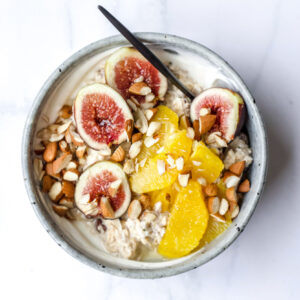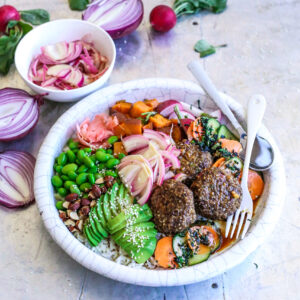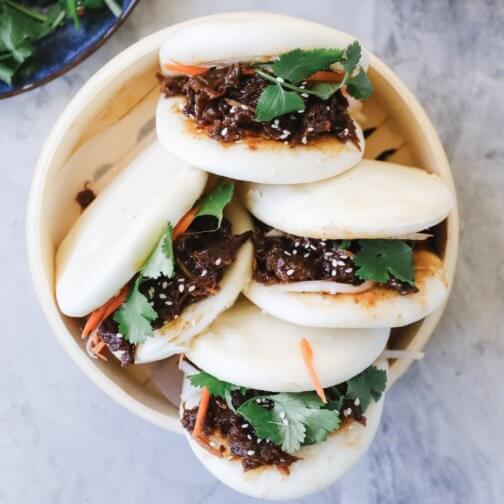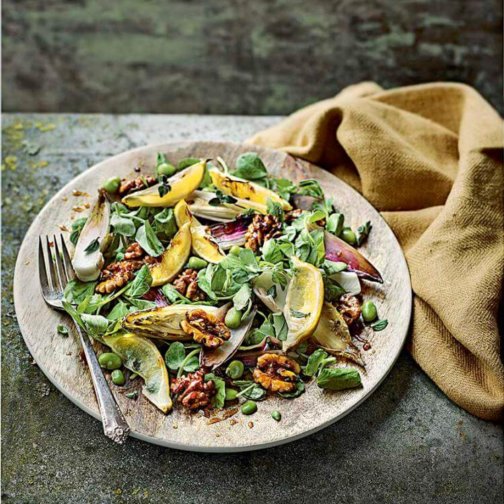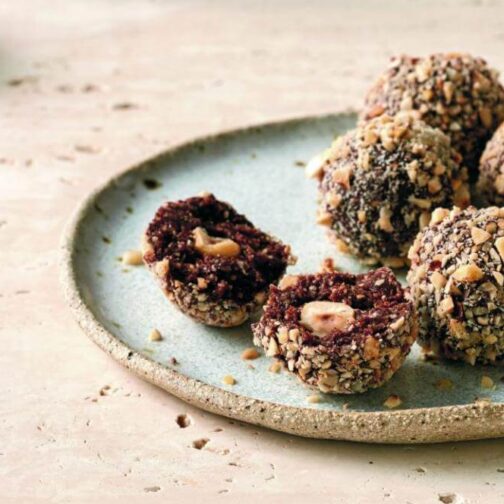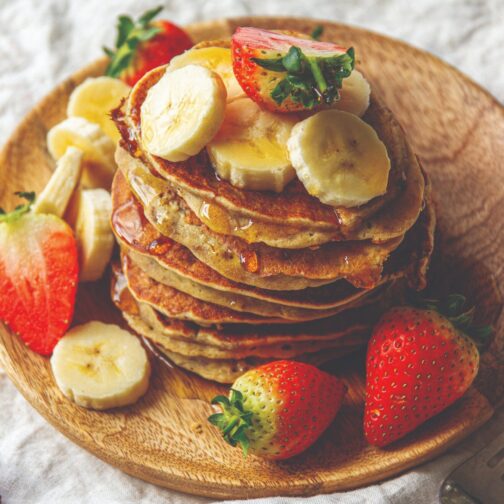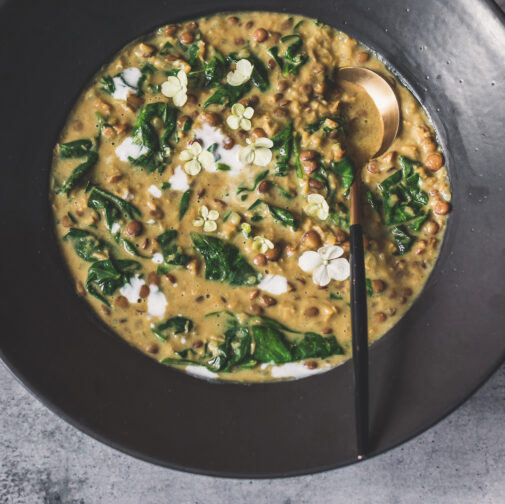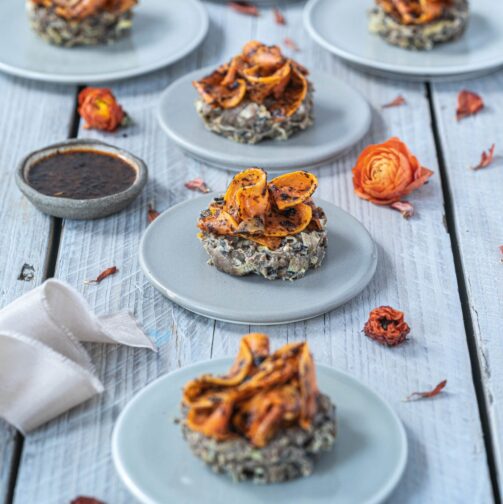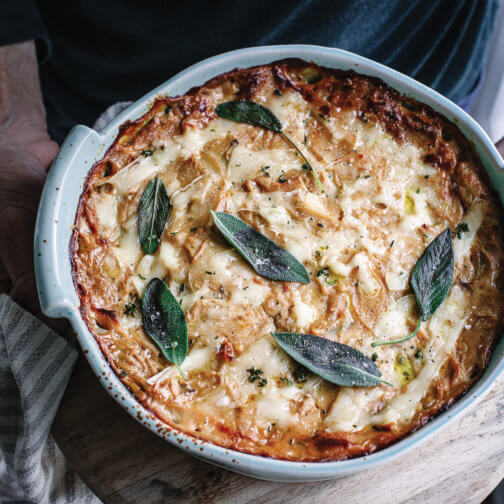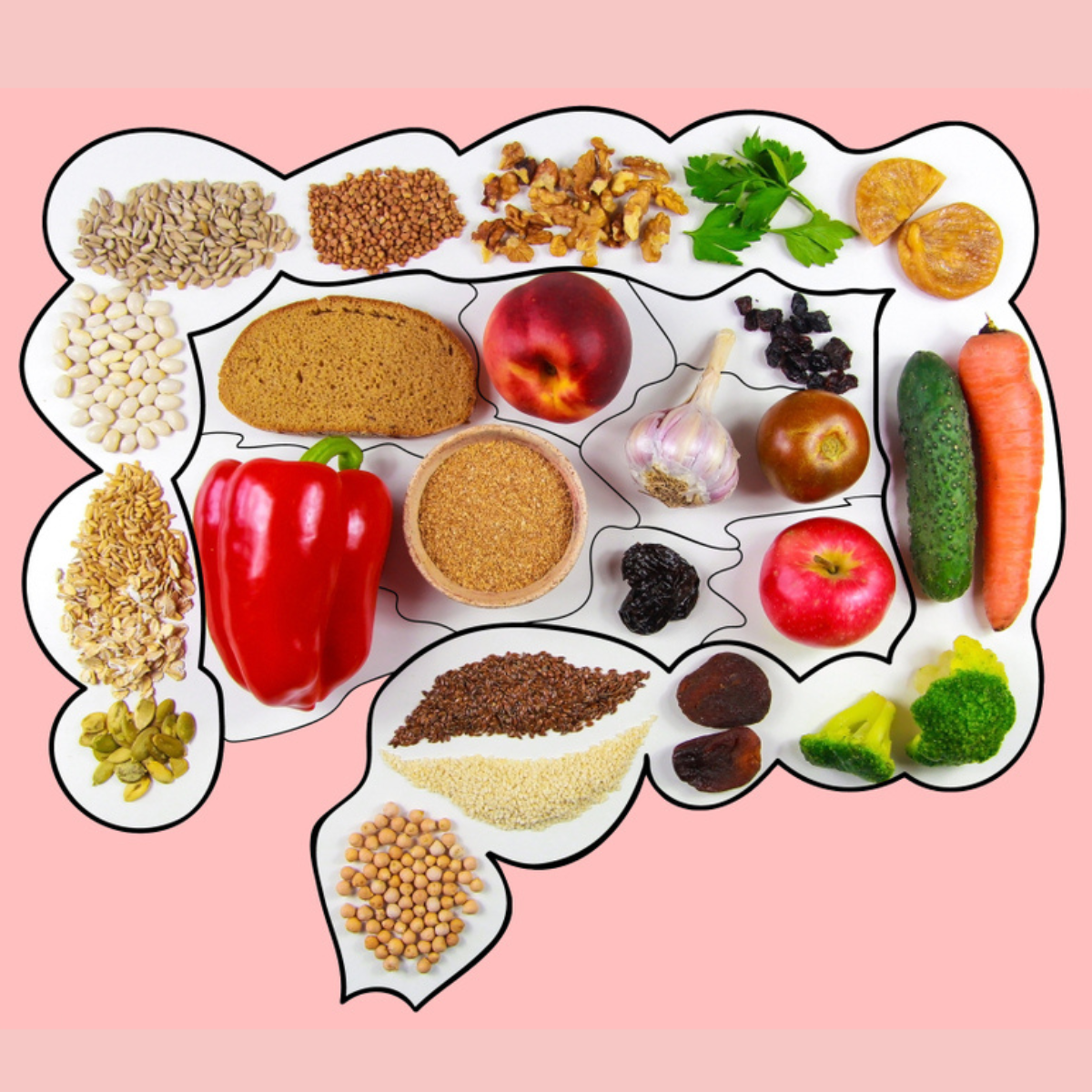
Accredited Nutritionist Jacqueline Alwill unpacks why (plant-based) variety is so vital to our health and wellbeing, and how to build the foundations of a healthy gut every day.
Variety is the spice of life, and, when it comes to gut health, variety and diversity of whole plant foods in our diet has been shown to support a healthy gut. However, our modern diets are often far from diverse and nourishing. So, how do we start to create sustainable dietary habits and give our gut the diversity in food and nutrition it needs?
What is the gut microbiome?
Let’s first revisit the epic environment that comprises our gut. Our gut microbiome is where we find trillions of different microbial species including bacteria, fungi, parasites, viruses, eukaryotes and archaea. Each of us has a unique gut microbiome which develops from birth and is then impacted by dietary and lifestyle factors throughout our lives. These factors can fuel our gut in a positive way, supporting the balance and work of these microbes, and ultimately improve our overall health and wellbeing. On the flipside however, if our lifestyle and diet does not serve, but instead disturbs the balance, diversity and function of microbes, gut dysbiosis can occur, potentially making our bodies more susceptible to illness and disease both in the short and long term.
Our gut microbes love plant based diversity…
If our gut microbes could speak they’d tell us straight up that whole plant foods – fruits, vegetables, nuts, seeds, beans, legumes and whole grains – and plenty of them, are their jam. When delivered diverse nutrition they can function optimally, and play powerful and positive roles in our body including:
- supporting digestion / nutrient metabolism and influencing energy expenditure
- the secretion and function of hormones
- regulating gene expression and epigenetic programming
- modulating immune function
- influencing brain function and emotional wellbeing
The standard Western diet sadly doesn’t benefit the gut microbiome. It’s generally rich in ultra-processed foods, full of refined sugars, saturated fats, additives and preservatives. It lacks nutritional diversity for improving and optimising gut and overall health. The Australian Bureau of Statistics reports that less than 5 percent of Australian adults actually consume the basic recommended daily intake of fruit and vegetables – just 2 serves fruit and 5 serves vegetables. Yet these simple plant foods are the foundational ingredients of a diet which supports gut health.
Whole, plant-based foods are the fuel for our microbes
A healthy gut microbiome has a diverse number of microbial species, and these microbiota similarly become healthy and satisfied by the diversity of plant food sources acquired via our dietary intake. Fruits, vegetables, nuts, seeds, beans, legumes and whole grains contain an abundance of fibre and phytochemicals which provide the fuel and nutrition for gut microbes.
Fibre from plant foods bypasses digestion in the small intestine, making its way to the large intestine where gut microbes utilise it for their fuel source. As soluble fibre is fermented by microbes in the gut, short chain fatty acids are produced (propionate, butyrate and acetate) which have been shown to play a role in metabolism, gene expression, and improved intestinal lining and function.
Phytonutrients or phytochemicals found in plant foods, such as flavonoids (found in red cabbage, blueberries, cranberries), anthocyanins (found in berries, currants, grapes), and carotenoids (found in carrots, capsicums, sweet potato), have been shown to have a positive influence on gut microbiota with anti-bacterial, anti-microbial (pathogenic), and prebiotic benefits.
Putting it into practice
You can build the foundations of a healthy gut every day by making food choices that are abundant in fibre and phytonutrients:
Set a solid foundation with a simple 2-3 serves of fruit and 5-7 serves of vegetables to start
- Include vegetables at breakfast to kickstart your intake – spinach, kale, frozen zucchini or frozen cauliflower in smoothies, handfuls of leafy greens or peas in a tofu scramble.
- Whenever you snack on a piece of fruit, add a whole vegetable (carrot or capsicum to the mix).
- Enjoy fruit as a snack when you feel sugar cravings hit, and team with nuts and seeds to diversify the fibres and phytochemicals present.
Think creatively with whole grains and legumes
- Cook grains in advance at the start of the week, so they are on hand to pop into meals – quinoa, buckwheat and brown rice are a simple go to; or soak oats overnight and enjoy with seasonal fruit for a quick, easy and gut-loving breakfast.
- Include plenty of herbs and spice with legumes to vary the way you consume them – brown lentils tossed with red onion, lemon, olive oil, parsley, coriander; split peas cooked into a dhal; and black beans blended into brownies.
Boost microbial diversity with fermented foods
Fermented foods contain live cultures, which have probiotic like effects and help to both diversify and increase the number of microbial species present in the gut.
- Enjoy some sauerkraut with your avocado on whole grain toast for breakfast.
- Sip on kombucha in place of alcohol for your evening drink.
- Spice up your veggie stir fry by adding tempeh and kimchi.
What we choose to eat on a daily basis impacts the function of gut microbes and their capacity to positively, or negatively, impact our gut and overall health. Choose wisely, with nutrient dense whole, plant foods and importantly – diversely.
While eating a rainbow of plant foods is the foundation of a thriving gut microbiome, a well-chosen supplement can also be a great option when seeking to diversify our gut flora. I am proud to be part of the expert panel behind the newly launched Essential Rainbow superfood powder from Australian plant-based company eimele, alongside Simon Hill, Dr Gemma Newman, and others.
This potent formula features polyphenols, carotenoids, plant-based omegas, pre-, pro- and post-biotics, digestive enzymes, and plant proteins, plus 23 essential vitamins and minerals that are known to support optimum health and wellness. Whether taken daily or on an occasional basis, this is an effective, safe and convenient way to support your gut health, immunity, cardiovascular and cerebrovascular health.
MY DAY ON PLATE
BREAKFAST
Fig and orange bircher
Once you get into the habit of making bircher – otherwise known as overnight oats – there’s no going back. This recipe, starring nuts, seeds, coconut yoghurt, fig, and orange, is one of my favourites.
RECIPE
Lunch
Teriyaki no-meatballs and rainbow veg
Jam-packed with gut-loving whole plant foods, this delicious and sustaining recipe is a perfect example of how to ‘eat the rainbow’.
RECIPE
Dinner
Split pea dhal with roast cauliflower and rice
Easy, comforting, and nutritious, this dish is like a hug for your tummy on the days when you’re feeling a little lower in energy and need a pick-me-up.
RECIPE
***
Limited time offer for Nourish readers: Receive 20 percent off Essential Rainbow with the code RAINBOW20 when placing your order at eimele.com

